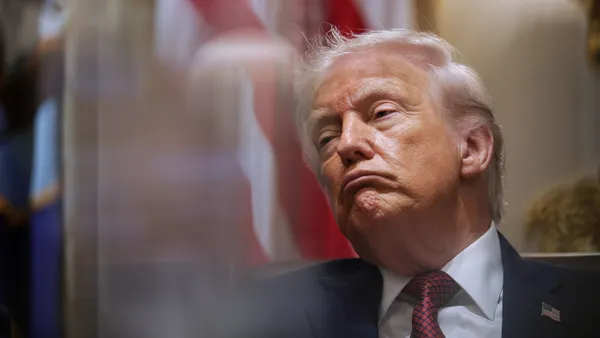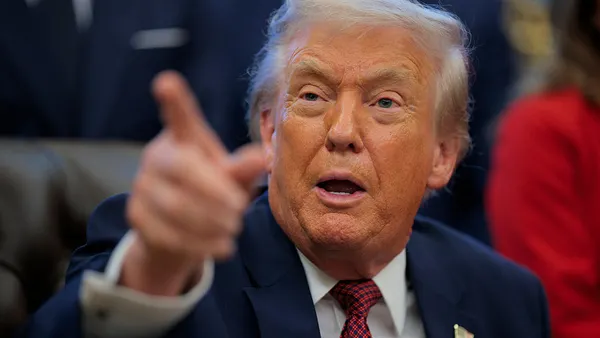Dive Brief:
- President Donald Trump is cracking down on enforcing depression-era Buy American federal procurement laws, The Washington Post reported last week. The president sent a memorandum to various executive departments, directing them to report on agencies' compliance efforts to the Department of Commerce.
- In theory, such laws would require the U.S. defense supply chain to be sourced entirely from within the country. However, agencies have for years relied on free-trade-based exemptions to skirt the rule, and save on costs.
- In practice, however, the U.S. now depends on global supply chains. As of 2013, the U.S. military spent $19.7 billion on foreign-produced products, largely for fuel and construction supplies, according to the Post. Greater enforcement may therefore disrupt federal supply chains, damage trade relations and force greater spending.
Dive Insight:
The Trump administration's position on global trade is clear: The U.S. will fight, both internally and externally, to bolster and protect domestic production of goods.
From the start of his administration, however, questions remained as to how he would achieve those goals. New trade deals, or renegotiations? Tariffs and trade wars? Greater enforcement of existing regulations? In examining the president's tools, Supply Chain Dive reported the latter was the most likely, as they could be achieved unilaterally by the executive office.
However, compliance-by-executive-order can also be the most disruptive. A trade war with China, while damaging, would take months if not years to unfold, and its negative impact could be mitigated by alternative sourcing. Similarly, trade deals must undergo a rigorous public process as well as a lengthy implementation process, providing companies more time to project and adjust to changes.
Meanwhile, orders on compliance can happen overnight by simply enforcing antiquated legislation, as the president is doing with Buy American rules. Then, if a company or agency is found non-compliant, sizeable fines are likely to be exacted, forcing companies to alter their practices.
Now would be a good time for internal compliance teams to brush up on processes, and begin to think about what tier-one suppliers could qualify for free trade waivers in the new administration.













